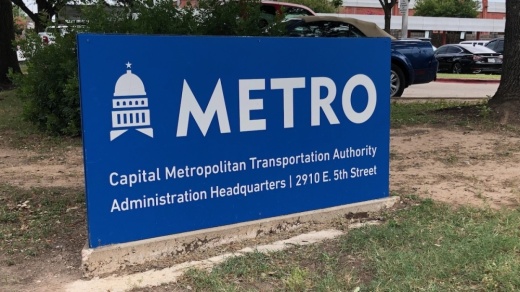During an Aug. 18 board meeting, the Austin Transit Partnership, the government corporation overseeing Project Connect, unanimously approved the statement that reads in part: “We acknowledge the role transportation systems and infrastructure play in perpetuating racial discrimination and civil rights, [and] social and economic inequities across the United States.”
It goes on to say that it will “ensure equitable access to the Project Connect system” and “allocate financial, capital, and human resources equitably.”
“It is emblematic of one of our core values of what we want to build with Project Connect,” said Courtney Chavez, Austin Transit Partnership’s director of equity and disadvantaged business enterprise, during a board meeting July 22.
Project Connect will possibly face challenges in ensuring its expanded system attains its equity goals. For example, much of the $7.1 billion in funding will go toward growing the light-rail system. However, current rail ridership is predominantly made up of higher-income riders, according to Capital Metro documents. Rail ridership is also 70% white, strikingly more than the Travis County population, which is 47.5% white.
Anti-displacement fund
Efforts aimed at equitable outcomes extend beyond building rail lines and improving bus routes.
The $300 million anti-displacement fund approved as a part of the $7.1 billion Project Connect program represents another key component of efforts to ensure that Austinites are not adversely impacted by the expanded public transit system.
Cities such as Denver and Seattle saw real estate prices near transit centers surge after building out their own public transit systems. The fund aims to counteract that dynamic by giving people the resources they need to stay in their homes and continue operating their small businesses.
The city of Austin will manage that fund, with Nefertitti Jackmon, the city's first community displacement prevention officer, at the helm. Jackmon said that the need to combat displacement has only become more urgent with the pandemic and rising housing costs creating more uncertainty for many Austinites.
“It doesn't seem like the need is going down, which is a little disappointing, the need that exists for people to get rental assistance,” Jackmon said.
As for the Project Connect anti-displacement fund specifically, the city is planning to unveil its equity tool later in August. It also plans to open applications for land acquisition projects led by community-based organizations in the fall, she said.
Equity in public transit study
Capital Metro has also been the subject of recent research around equity in public transit.
University of Texas associate professor Alex Karner looked into ways that public transit agencies can advance equity in a study published in July. Of the eight agencies nationwide included in the study, Capital Metro stood out for Pickup, its on-demand service, as well as its equity-centered advisory committee—one for fare changes and the other for improving bus stops.
“In general, Cap Metro does a good job at including people on advisory committees, including the right people on advisory committees,” Karner said.
Karner said that Capital Metro’s creation of an advisory committee for Project Connect implementation represents another potentially encouraging sign. However, he added that it is too early to determine the effectiveness of the project’s overall equity initiatives.
“The stakes for Project Connect are quite a bit higher than a particular fare change policy,” Karner said. “Project Connect is billions of dollars happening over 30 years. There’s $300 million in funds that are set aside to deal with displacement issues. The partnership board that oversees Project Connect are going to have some hard decisions in the future about how they're going to think about allocating those funds.”





